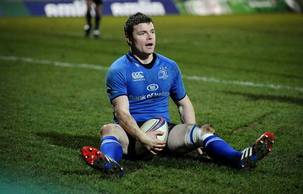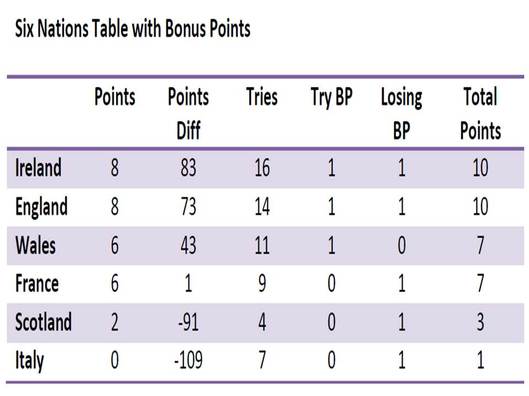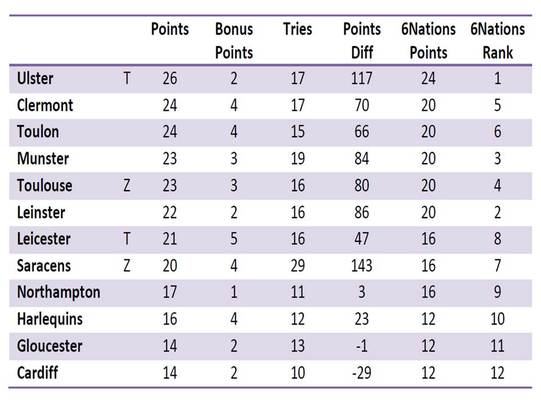
However, in this post the focus is on how the structure of the championship and the rules fr determining who are the champions incentivises particular behaviour. Sports bodies are no strangers to tinkering with regulations (sometimes with perverse outcomes) to encourage participants to do certain things or to indicate what is 'valued'. Economists are very familiar with the idea of using incentives to change behaviour. In football the points awarded to winning teams went from 2 to 3 to change the relative value of attacking play. In a previous post on the League of Ireland I looked at the change from choosing among teams on the same points based on goal average to goal difference. Also, the league also once tested the effect of awarding 4 points for an away win, 3 for a home win, 2 for an away draw and 1 for a home draw.
Rugby has at different times awarded different points for tries (initially it was worth less than a penalty or drop goal). However the value of a try relative to a penalty has increased to 5:3 (since 1993) from 4:3. This is before the propsect of an additional 2 points for a try conversion is considered. This has increased the relative value of a try compared to other ways of scoring. Presumably this is intended to encourage teams to seek tries, improving the game for spectators.
How sports bodies frame incentive structures can determine the behaviour of participants and so encourage particular types of play. Also, sports bodies need to find ways that allow them determine a winner when participants are level after 'regulation' play. Examples include tie-breaks in tennis, penalty shoot-outs and away goals rules in soccer and overtime in American football.
In European rugby union there are two approaches used to determine the winner of a 'league' when teams are tied on points. In the Six Nations Championship points difference is used (similarly to football's goal difference). In the Heineken Cup the winner of a pool is determined by the number of points, then, if that is the same, the number of points in the games between the teams and then the number of tries scored by each team. Points difference is quite a bit down the list of criteria. The rules are available here. There is another difference between the Heineken Cup and Six Nations Championship in that the latter provides a bonus point if a team scores four or more tries in one game and one bonus point if a team loses by 7 points or less. The intention is to reward try scoring teams and also to encourage teams to maintain effort even if they are likely to lose a game.
The lack of bonus point system in the Six Nations is curious. The excuse usually given for its absence is that teams do not have home and away fixtures like in the Heineken Cup and bonus points could give an unfair advantage to teams with more home games. A previous post referred to this advantage. However, it is likely that a points difference rule also gives an advantage to teams with more home games if a team is more likely to win home matches.
The tables below show what the outcomes would have been in the 2014 Six Nations Championship and the pool stages of the Heineken Cup if both systems were applied in each case. There is no change in the Six Nations outcome. Perhaps it's notable how few bonus points are won. On only three occasions did a team score four tries or more - twice it happened against Italy. Would bonus points improve this number?
Using the Six Nations approach of deciding rank based on winning points (stripping out bonus points) and then on points difference gives a somewhat different outcome. The top 3 teams in that case are all Irish. Leinster go from sixth (and an away game against Toulon) to second and a home game against Saracens. Munster would move from fourth to third. Clermont and Toulon would both lose home advantage.


 RSS Feed
RSS Feed